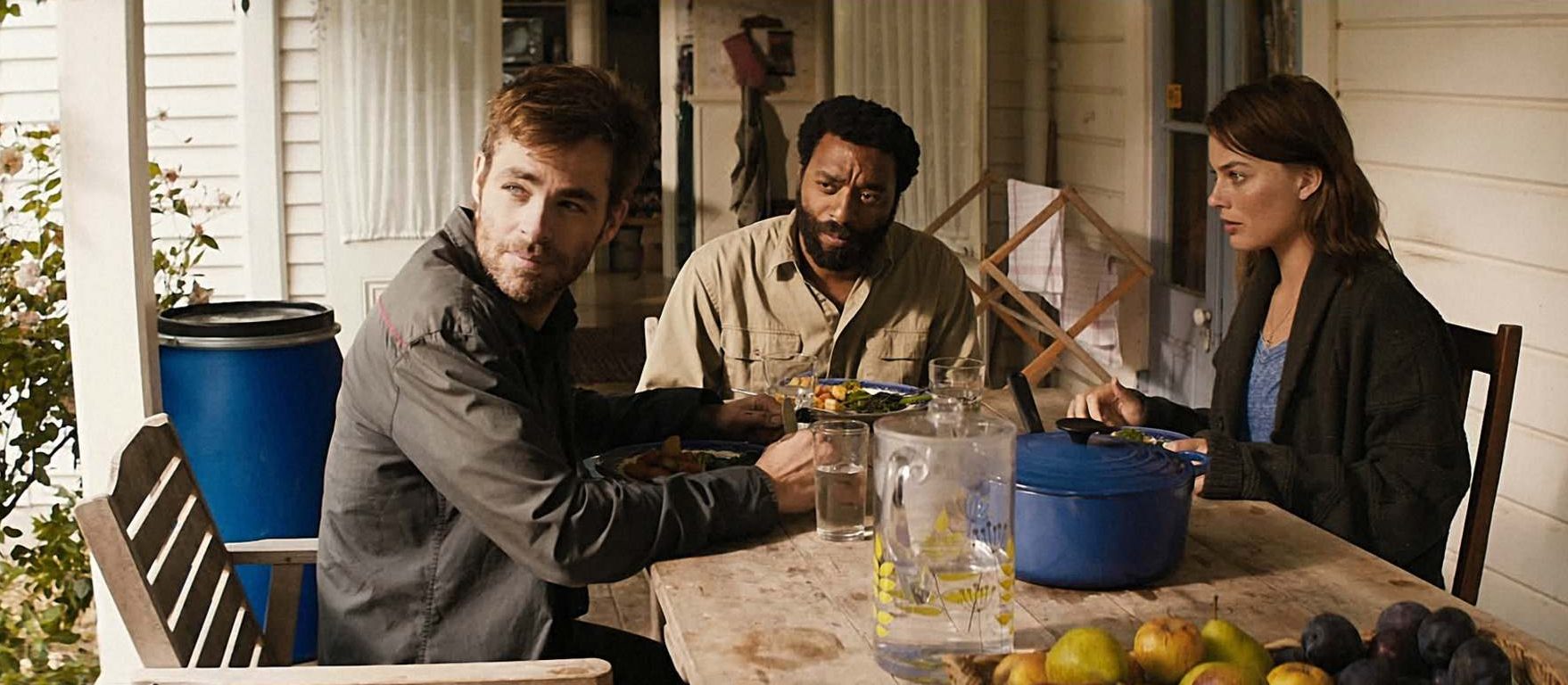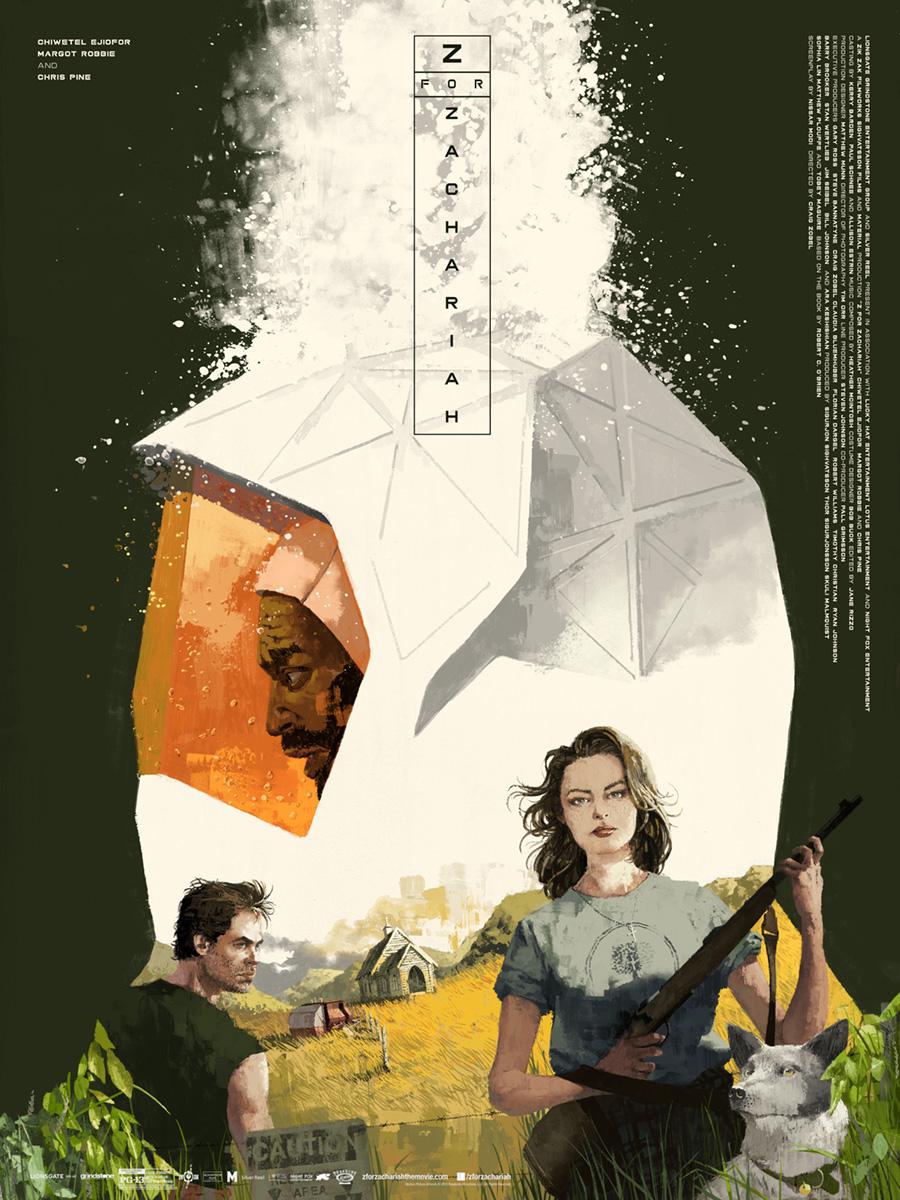

“This man could be anything.”
Set in the wake of a nuclear apocalypse, Z for Zachariah is a morality play that brings into focus a love triangle between three survivors as they vie for survival in a fertile valley sheltered from the radioactive fallout. Instead of bombarding us with the zombies and ruthless scavengers that typically characterize post-apocalyptic settings, Craig Zobel’s film offers a light biblical allegory meant to provoke considerations of ethics and religion. A basically telegraphed plot unfolds that never fully immerses itself in the end-of-the-world scenario, leaving us with a slight dramatic punch that doesn’t land with much force. Though the script remains refreshingly noncommittal regarding its central religion v. science conflict, and the small cast is uniformly excellent, the lack of a strong narrative ultimately proves too detrimental to overcome.
In a film with only three characters, much rides on the quality of the performances. Thankfully, Margot Robbie, Chiwetel Ejiofor, and Chris Pine all put in solid work. Robbie, fresh off her breakout role in The Wolf of Wall Street, plays the God-fearing Ann, living alone on her parents’ farm, naively forging ahead with the planting, harvesting, mending, and milking. In contrast to the lethal, barren terrain surrounding it, her valley is lush with life. This allows her to live an agrarian lifestyle while the rest of the world remains uninhabitable, growing food and drinking fresh water. Full of unwarranted optimism—or at least living in willful ignorance—she believes her parents are on a rescue mission out in the wasteland looking for fellow survivors and that her kid brother has safely caught up with them. In all likelihood, they’re probably dead just like everyone else. But she toils away with her dog as her sole companion.

When an outsider enters her fertile valley, she discreetly follows him, unaware of his intentions or capabilities. But when he begins bathing in radioactive water, her desire for human companionship overwhelms her caution and she rushes to save him. He nearly dies, but as John Loomis (Ejiofor) recovers under Ann’s tender care he gradually becomes a part of her rustic life and they begin collaborating on future plans. A government-contracted engineer, Loomis was working in an underground bunker when the nuclear holocaust commenced. He traversed the inhospitable landscape using an experimental radiation suit and regular doses of medication and his scientific mind is put to good use on Ann’s farm. He shows Ann how to manually pump gas to get her tractor running again, fixes the generator at the house, and proposes a water-wheel to generate hydroelectricity. This last suggestion brings the newly formed team into conflict, as the irreligious Loomis wants to tear down the small town church to build the wheel and platform. Ann is attached to the building because her father built it and preached there every Sunday and it houses her beloved organ.
A romance gradually builds between them, with John refusing to consummate the relationship for fear of its implications. Their plans are thrown into disarray by the arrival of another survivor. Caleb (Chris Pine) is a fellow Southerner like Ann. Blue-eyed and charming, he shares her religion and has no qualms about openly pursuing Ann and driving a wedge between her and John. A jealous love triangle develops as Caleb sticks around longer than intended and proves useful. His hotblooded chemistry with Ann proves more magnetic than the sometimes brotherly affections of John, and the tension generated amongst the edgy trio holds steady through an ambiguous ending in which neither John nor Caleb come out as a moral example.

I think my disappointment with Z for Zachariah stems from my misguided expectations. It has some of the aesthetic trappings, but this is not really committed to the genre that its style would imply. Questions of repopulating the earth, opening communications in search of other survivors, securing the collected knowledge of mankind, etc. are left undiscussed. Rather, we’re presented with an imagery-laden romantic drama, full of steely glances, body language, ruminating silences. It’s uplifted by three very good performances, but considered as a drama, it simply feels too slight. It raises some interesting conflicts, but then skirts around them without actually digging in (you can dig in without taking a side). Many ideas are approached and then shied away from, leading to a pervasive sense of blandness. Oh well, at least the end of the world features three good-looking actors who happen to be good at their jobs.